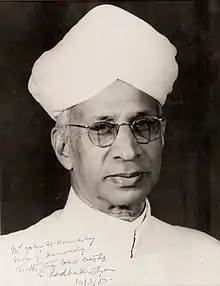Portal:Religion
The Religion Portal

Religion is a range of social-cultural systems, including designated behaviors and practices, morals, beliefs, worldviews, texts, sanctified places, prophecies, ethics, or organizations, that generally relate humanity to supernatural, transcendental, and spiritual elements—although there is no scholarly consensus over what precisely constitutes a religion. Different religions may or may not contain various elements ranging from the divine, sacredness, faith, and a supernatural being or beings.
Religious practices may include rituals, sermons, commemoration or veneration (of deities or saints), sacrifices, festivals, feasts, trances, initiations, matrimonial and funerary services, meditation, prayer, music, art, dance, or public service. Religions have sacred histories and narratives, which may be preserved in sacred texts, symbols, and holy places, that primarily aim to give life meaning. Religions may contain symbolic tales that may attempt to explain the origin of life, the universe, and other phenomena; some followers believe these to be true stories. Traditionally, both faith and reason have been considered sources of religious beliefs.
There are an estimated 10,000 distinct religions worldwide, though nearly all of them have regionally based, relatively small followings. Four religions—Christianity, Islam, Hinduism, and Buddhism—account for over 77% of the world's population, and 92% of the world either follows one of those four religions or identifies as nonreligious, meaning that the remaining 9,000+ faiths account for only 8% of the population combined. The religiously unaffiliated demographic includes those who do not identify with any particular religion, atheists, and agnostics, although many in the demographic still have various religious beliefs.
Many world religions are also organized religions, most definitively including the Abrahamic religions Christianity, Islam, and Judaism, while others are arguably less so, in particular folk religions, indigenous religions, and some Eastern religions. A portion of the world's population are members of new religious movements. Scholars have indicated that global religiosity may be increasing due to religious countries having generally higher birth rates.
The study of religion comprises a wide variety of academic disciplines, including theology, philosophy of religion, comparative religion, and social scientific studies. Theories of religion offer various explanations for its origins and workings, including the ontological foundations of religious being and belief. (Full article...)
 Vital article
Vital article
Muhammad (Arabic: مُحَمَّد; c. 570 – 8 June 632 CE) was an Arab religious, social, and political leader and the founder of Islam. According to Islamic doctrine, he was a prophet divinely inspired to preach and confirm the monotheistic teachings of Adam, Abraham, Moses, Jesus, and other prophets. He is believed to be the Seal of the Prophets within Islam, with the Quran as well as his teachings and practices forming the basis of Islamic religious belief. (Full article...)
 Did you know (auto-generated)
Did you know (auto-generated)
- ... that religious studies scholar C. Jouco Bleeker believed that religions are like acorns?
- ... that across his thirty-six collections, fashion designer Alexander McQueen contemplated religion, told fairy tales, and criticized the fashion industry?
- ... that Gamaliel's principle has been used to support religious pluralism and reforms within religious groups?
- ... that Freedom of Religion South Africa filed an unsuccessful lawsuit to keep child spanking legal?
- ... that Musa va 'Uj depicts figures from all three Abrahamic religions?
- ... that Myth and Religion of the North by Gabriel Turville-Petre has been described as the best work on Norse mythology in English?
 Featured pictures
Featured pictures
 Related portals
Related portals
 Featured article
Featured article
William Marrion Branham (April 6, 1909 – December 24, 1965) was an American Christian minister and faith healer who initiated the post-World War II healing revival, and claimed to be a prophet with the anointing of Elijah, who had come to prelude Christ's second coming; some of his followers have been labeled a "doomsday cult". He is credited as "a principal architect of restorationist thought" for charismatics by some Christian historians, and has been called the "leading individual in the Second Wave of Pentecostalism." He made a lasting influence on televangelism and the modern charismatic movement, and his "stage presence remains a legend unparalleled in the history of the Charismatic movement". At the time they were held, his inter-denominational meetings were the largest religious meetings ever held in some American cities. Branham was the first American deliverance minister to successfully campaign in Europe; his ministry reached global audiences with major campaigns held in North America, Europe, Africa, and India. (Full article...)
Top 10 WikiProject Religion Popular articles of the month
 Subcategories
Subcategories
Topics
 Get involved
Get involved
Associated Wikimedia
The following Wikimedia Foundation sister projects provide more on this subject:
-
 Commons
Commons
Free media repository -
 Wikibooks
Wikibooks
Free textbooks and manuals -
 Wikidata
Wikidata
Free knowledge base -
 Wikinews
Wikinews
Free-content news -
 Wikiquote
Wikiquote
Collection of quotations -
 Wikisource
Wikisource
Free-content library -
 Wikiversity
Wikiversity
Free learning tools -
 Wiktionary
Wiktionary
Dictionary and thesaurus



.jpg.webp)




_-_Google_Art_Project.jpg.webp)


.jpg.webp)

.jpg.webp)

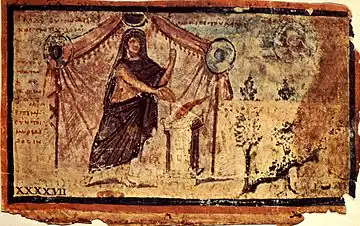
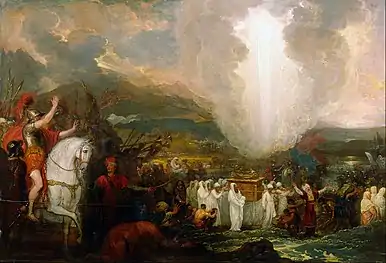

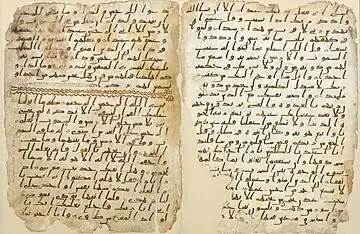
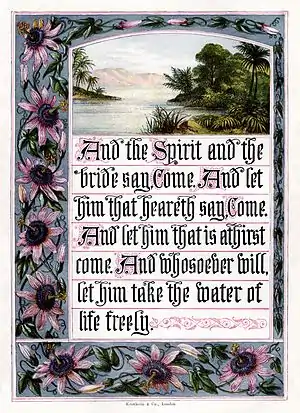










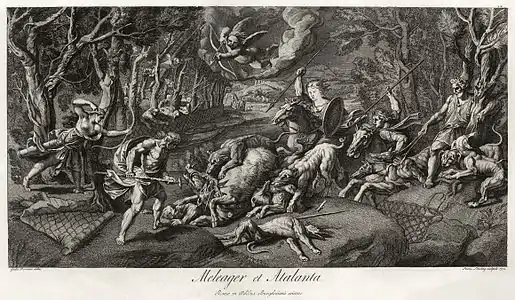






.jpg.webp)
.jpg.webp)







